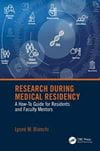The Emergency Medicine Department at UPMC Hamot supports resident and faculty scholarly activities through multiple programming initiatives. Under the guidance of the Program Director, with support from the Director of Medical Research and faculty mentors, residents pursue research and quality improvement (QI) projects in areas of interest, preparing them with skills needed throughout their medical careers.
Lectures include the core content required by the Accreditation Council for Graduate Medical Education (ACGME) for all residency programs. Topics include study design, ethics, statistical approaches, various forms of medical writing, and conference presentation skills.
Mentoring from the program director, faculty, and the research director is available for each resident. Opportunities for interdisciplinary collaborations with other medical departments and local universities are also available.
Journal Club is offered each month, co-led by residents and faculty members who select articles and facilitate discussion in areas of interest.
Each resident is required to complete a scholarly project prior to graduation and present the findings at a local, regional, or national conference. Residents are encouraged to publish work when appropriate. Assistance with manuscript preparation, journal selection, and submission is available during and after graduation.
Project Development Expected Timeline
Examples of Recent Scholarly Work
Journal Publications:
Phinney T, Callenius K, Singh M, Juhasz K, Stiven M, Tseng J. A Rare Case of Thiamine Deficiency Leading to Dry Beriberi, Peripheral Neuropathy, and Torsades De Pointes. Cureus. 2023;15(11):e48853.
Juhasz KA, Iszkula ER, English GR, Desiderio DB, Estrada CY, Leshikar DE, Pfeiffer BT, Roesel EH, Wagle AE, Homers JF Jr. Risk Factors, Management, and Outcomes in Isolated Parafalcine or Tentorial Subdural Hematomas. Am J Emerg Med. 2023;66:135-140. doi:10.1016/j.ajem.2023.01.014 PMID 36753929
Risavi BL, Reese EM, Knott M. An Unusual Presentation of Spontaneous Spinal Epidural Hematoma. J Am Coll Emerg Physicians Open. 2023 Mar 15;4(2):e12925. doi: 10.1002/emp2.12925.
Other Publications:
Iszkula E. Box 1.4: A Physicians Perspective: Presentations of SARS-CoV-2 in an Emergency Department. In: Bianchi LM The Developing Brain and Its Connections. CRC Press; 2023, 32-33.
Example Presentations:
Zingg L, Ellis K, Reese E, Juhasz K. The Impact of Home Zip Code on COVID-19 Vaccination Rates. Rita M. Patel Leadership Conference
Kessack J, Michlinski M, McCrory J, Rivera J, Geraud S, Juhasz K, Unger A. Utilization of Regional Anesthesia for Acute Hip Fracture in the Emergency Department. UPMC Hamot Patricia Ladds Research Days, March 2024
Ferrera F; Cauvel J, Puller J, DeLullo, J. Implementation of an Abbreviated Magnetic Resonance(aMRI) Imaging Protocol in the Identification of Suspected Occult Hip Fractures – Is it Accomplishing its Purpose? 5th Annual GME Quality and Safety Conference Pittsburgh, PA May 2023
Books:
 In 2022, faculty from the Emergency Medicine Department and the other Hamot residency programs published a book Research During Medical Residency: A How-To Guide for Residents and Faculty Mentors (CRC Press). This book covers ACGME required material including how to develop a new project, search the literature, collect and analyze data, write a grant proposal, and publish and present study results.
In 2022, faculty from the Emergency Medicine Department and the other Hamot residency programs published a book Research During Medical Residency: A How-To Guide for Residents and Faculty Mentors (CRC Press). This book covers ACGME required material including how to develop a new project, search the literature, collect and analyze data, write a grant proposal, and publish and present study results.

















